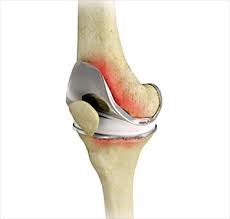Knee replacement surgery, also known as knee arthroplasty, is a procedure often recommended to individuals experiencing severe knee pain and limited mobility due to various underlying conditions. The decision to undergo knee replacement surgery is typically made when conservative treatments, such as medications, physical therapy, and lifestyle modifications, have failed to provide adequate relief.
Here are some of the most common reasons why people may undergo knee replacement surgery:
- Osteoarthritis: Osteoarthritis is the most common reason for knee replacement surgery. It occurs when the cartilage that cushions the ends of the bones in the knee joint gradually wears away, leading to pain, stiffness, swelling, and reduced range of motion.
- Rheumatoid arthritis: Rheumatoid arthritis is an autoimmune condition that causes inflammation in the lining of the joints, including the knee joint. Over time, this inflammation can damage the cartilage and bone, leading to pain, deformity, and functional impairment.
- Post-traumatic arthritis: Post-traumatic arthritis develops following a serious knee injury, such as a fracture or ligament tear. The injury may disrupt the normal structure of the knee joint, leading to accelerated wear and tear and the development of arthritis over time.
- Knee deformities: Some individuals may undergo knee replacement surgery to correct knee deformities, such as bowed legs (varus deformity) or knock knees (valgus deformity), which can cause pain and instability.
- Avascular necrosis: Avascular necrosis occurs when the blood supply to the bone in the knee joint is disrupted, leading to bone death and collapse. This can result from trauma, excessive steroid use, or certain medical conditions, and may necessitate knee replacement surgery in severe cases.
- Meniscus tears: While not always a primary indication for knee replacement surgery, severe meniscus tears that cannot be adequately repaired or managed through conservative treatments may eventually lead to advanced arthritis and the need for joint replacement.
- Ligament damage: Severe damage to the ligaments surrounding the knee joint, such as the anterior cruciate ligament (ACL) or posterior cruciate ligament (PCL), may compromise the stability of the knee and contribute to progressive joint degeneration, warranting knee replacement surgery.
- Failed previous knee surgeries: In some cases, individuals may require knee replacement surgery due to the failure of previous knee surgeries, such as unsuccessful attempts at cartilage repair or partial knee replacement.
Overall, knee replacement surgery aims to relieve pain, restore function, and improve quality of life for individuals with debilitating knee conditions that have not responded adequately to conservative treatments. It is important for individuals considering knee replacement surgery to consult with an orthopedic surgeon to discuss their specific condition, treatment options, and expected outcomes.






Comments